![]() — Home — Business News
— Home — Business News
Weekly Business News from Myanmar
-
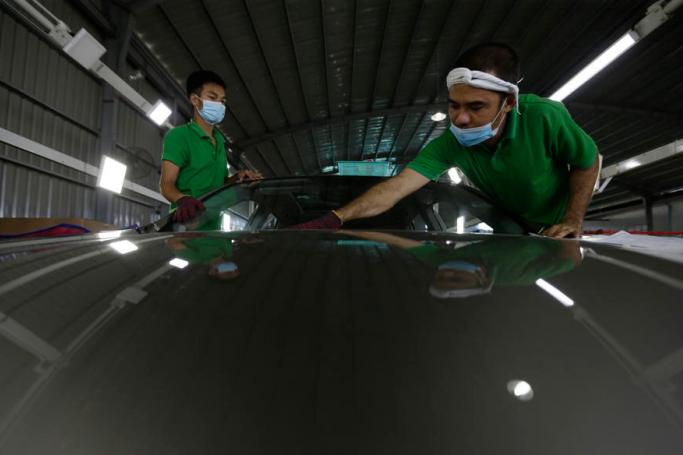
Myanmar MSMEs and factories are suffering the difficulties due to the government authorities order to lock-down to prevent the COVID – 19 pandemic
Many small and medium businesses and factories are in difficulty after the Myanmar authorities ordered to lockdown and social distancing to prevent the spread of the coronavirus or COVID-19. The lockdown has had a serious effect on many factories that employ hundreds of thousands of people. Bloomberg reports that the majority of the country’s 60,000 registered factories face irreversible damage if shutdown measures prompted by the Covid-19 pandemic are extended beyond May 15, according to the head of the nation’s largest manufacturing trade group. According to Aung Thein, president of the Myanmar Industries Association, many factories that have been unable to operate since early April may collapse if they are not able to operate after May 15. -
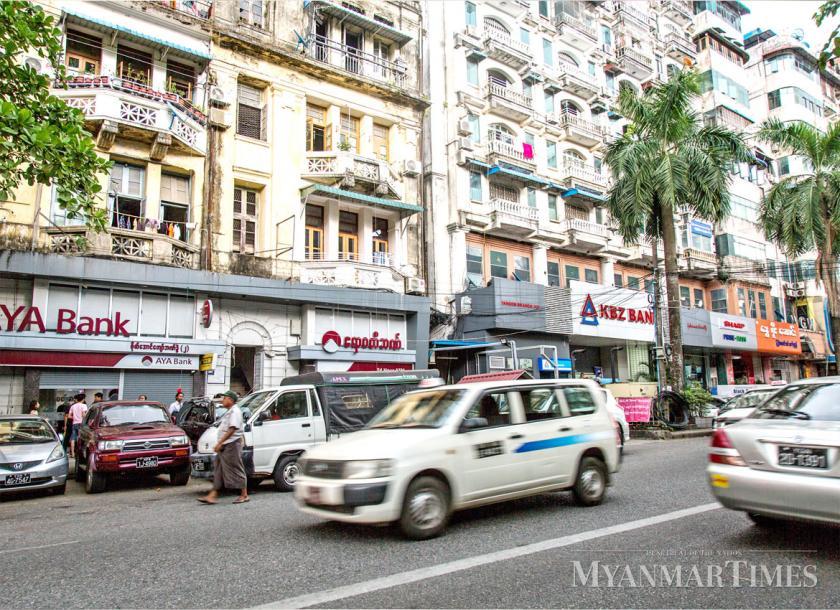
The Central Bank of Myanmar (CBM) reinstated banking hours after businesses and the public complaints emerge
The Central Bank of Myanmar (CBM) has reinstated banking hours to 9.30am-3pm starting May 12, after businesses and the public urged it to reconsider the current hours in the country. The CBM on April 28 instructed local banks to open from 10am to 2pm for the duration of COVID-19 to prevent the spread of the virus among bank employees and for banking operations to continue smoothly. But since the opening hours have been compressed, the banks have instead been getting more crowded as clients rush to conduct their banking affairs within a shorter timeframe. “Customers are facing difficulties and the banks are getting more crowded. Actually, the CBM should have expanded the banks’ operating hours instead of reducing them,” said U Maung Maung Lay, vice president of the Union of Myanmar Federation of Chambers of Commerce and Industry (UMFCCI). -

AIA insurance is still planning to expand more in Myanmar amidst COVID – 19
AIA insurance is still planning to expand more in Myanmar amidst COVID – 19 -

Myanmar’s mineral exports increased USD $ 282 million as of May in the current financial year when compared to the same period of previous year
Myanmar’s mineral exports have shown a marked increase this fiscal, touching US$1.16 billion between 1 October and 1 May, an increase of $282 million compared with the year-ago period, according to the data from the Ministry of Commerce. In the corresponding period of the previous financial year, mineral exports were pegged at just $878 million. Both private and public sector mineral exports have recorded an increase in the current fiscal, with private sector exports valued at $705.26 million and public sector exports estimated at $454.87 million. So far, excavation of over 1,250 mining blocks has been permitted on a manageable, small, medium, and large scale, according to the Ministry of Natural Resources and Environmental Conservation. Due to the limited extraction of natural resources, exports of forest products and minerals had dropped significantly in the previous years. Permits for mining blocks were suspended in 2016, but after a period of two years, Myanmar’s mining sector has now been opened to local and foreign investors, according to the ministry. Within two years of the implementation of the Myanmar Mines Law, the Mines Department has approved 144 out of 3,000 proposed mining blocks and many more blocks will soon be granted the permit. -

Total 22 government ministries allocated 10 percent of budgets for Myanmar’s COVID – 19 Economic Response Plan (CERP) fund
A total of 22 government ministries have submitted 10 percent of their allocated 2019-20 budgets to help fund Myanmar's COVID-19 Economic Response Plan (CERP) for cabinet approval, said Daw Thida Tun, director general of Budget Department, Ministry of Planning, Finance and Industry. "We instructed the ministries to set aside 10pc for their budgets this fiscal year for the CERP. Some departments may submit less than 10pc as their funds are necessary for national development. For example, income tax revenues will not be approved for the fund," she said. The funds allocated exclude local and foreign loans taken by each ministry, if any. As the budget estimate for 2019-20 has already been approved in Parliament, the 10pc allocations do not need to be resubmitted for further approval. -
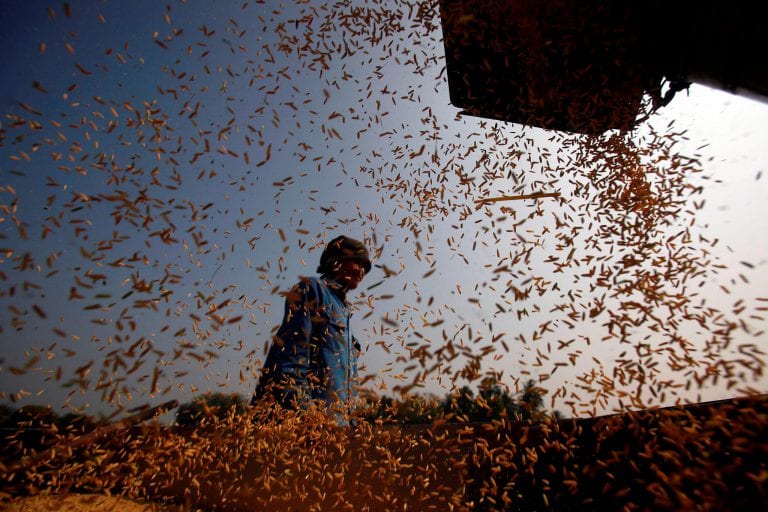
Myanmar Rice Federation, Rice Wholesales Market (Muse) and Rice Merchants Association jointly urged the stakeholders to fully comply with China’s Regulations on the Management of Pesticides
Myanmar Rice Federation, Rice Wholesales Market (Muse), and Rice Merchants Association jointly issued an announcement urging all the stakeholders to fully comply with China’s Regulations on the Management of Pesticides. The announcement highlighted the need to follow the bilateral contracts with China and procedures in exporting rice to China. As of now, Myanmar has sent information of 43 companies that will export rice to China, and eleven companies that have been approved by China in 2014 will be allowed to export rice to China. The above mentioned 43 companies have proposed 33 warehouses in Yangon Region, 26 warehouses in Ayeyarwaddy Region, 12 warehouses in Bago Region, three in Mandalay Region and Naypyidaw Region, and each in Sagaing Region and Magway Region, to be used in storing rice to export China. However, they will first need to be approved by China before storing rice to export. -

The value of trade through Muse border down by USD $ 123 million as of 1 May in the current financial year when compared to the same period of previous financial year
The value of Sino-Myanmar border trade through the Muse border plunged to US$2.9 billion between 1 October and 1 May in the current financial year 2019-2020, a decrease of $123 million compared to the corresponding period of the previous fiscal, according to the Ministry of Commerce. Exports through the Muse border were worth $1.89 billion, while imports were valued at $1.02 billion. During a-year ago period, Muse border witnessed trade worth $3.03 billion. Muse is an important border in Myanmar and handles the largest volume of trade. But at times, it has experienced a sharp drop in trade on account of China clamping down on illegal goods, resulting in a halt in the trade of agricultural products. Moreover, the coronavirus impacts slow the trade this year. Following the coronavirus consequences, trading at Muse border did not reach a monthly target in the past months. The trade values were registered about $370 million in January, $260 million in February, $300 million in March and over $290 million in April, while the monthly target was aimed at above $400 million. -
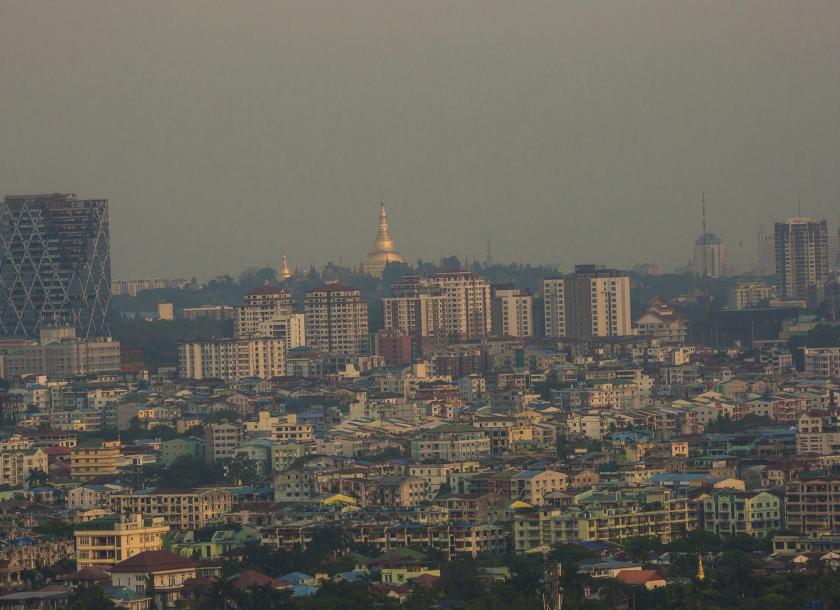
Myanmar’s tourism operators expected to recover in two years at best due to COVID – 19 restrictions
Myanmar’s tourism industry is expected to remain closed for the rest of the year due to COVID-19 restrictions, operators said. The recovery of the sector depends on the country’s ability to control and contain the spread of COVID-19. Meanwhile, far fewer foreign tourists are expected over the next two years. “It may be possible for local people to start making trips in October if the pandemic is controlled but rather than in groups, most people will only travel with their families. It would be hard to restart both inbound and outbound tours,” said U Thet Lwin Toe, an industry insider based in Yangon. -

Ministry of Natural Resources and Environmental Conservation (MONREC) will approve the new medium and large –scale exploration and extraction mining permits
Myanmar will approve the applications of up to 158 new medium and large-scale exploration and extraction mining permits, said U Thein Soe, Deputy Permanent Secretary of the Ministry of Natural Resources and Environmental Conservation (MONREC). The ministry has received more than 3000 applications to conduct activities at the new mining blocks since July 2018 and is planning to approve 158 for medium and large scale exploration and extraction now that the regional governments involved have completed checks and provided recommendations. Part of the requirements in granting the licences are that the companies must have environmental management plans in place. The permit approvals will be granted “soon,” said U Thein Soe. “The 158 permits will be granted to both domestic and foreign investors,” he added. -
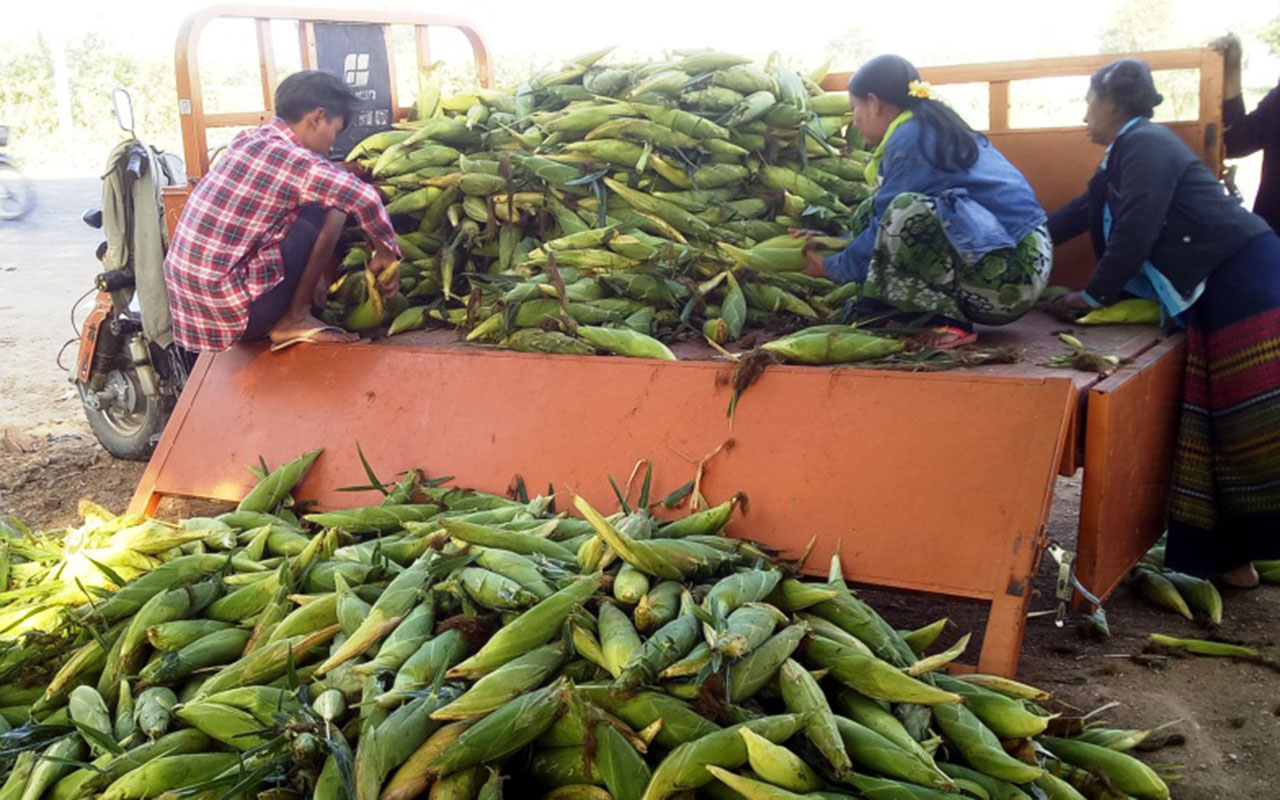
Myanmar exported over 600,000 tonnes of corns to China and Thailand through borders in the H1 of the current 2019 – 2020 financial year
Myanmar has exported more than 600,000 tonnes of corns to China and Thailand through borders in the H1 of the current financial year 2019-2020, the Commerce Ministry’s data indicated. Over 500,000 tonnes of corns were sent to Thailand through Tachilek and Myawady borders, whereas Myanmar exported over 100,000 tonnes of corns via five Sino-Myanmar borders — Muse, Lwejel, Chinshwehaw, Kampaiti and Kengtung. Earlier, China is the major purchaser of Myanmar’s corn. Later, Myanmar traders turned to the Thailand border market. Additionally, Myanmar exports corn to India, Viet Nam, Malaysia, Singapore and the Philippines through maritime trade. Yet, the volume of corn exports to those markets is quite small. It has been one year since China suspended the importation of some agro products through the borders. Besides, corn is not listed in China’s legitimate goods for border trade. Therefore, the ministry is making an effort to seek China’s AQSIQ registration and to reach an agreement with China for legal trade.
Business News
Copyright © 2014 Business Information Center All Rights Reserved.







